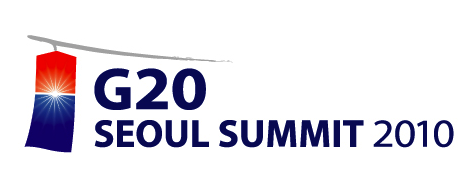By Ben Hall in Paris Published: August 25 2010 21:04 | Last updated: August 25 2010 21:04
Nicolas Sarkozy on Wednesday set out his agenda for France’s forthcoming presidency of the G20 group of leading economies, proposing measures to reduce currency fluctuations, curb commodity speculation and speed up reform of international institutions.
In his annual speech to French diplomats at the Elysée palace, the president said France would lead the G20 with “action and ambition” when it took over the presidency in November and was determined not to let the group lapse into a “managerial” approach to global economic and financial problems.
Mr Sarkozy fleshed out his call earlier this year for an overhaul of the international monetary system but stepped back from his previously stated proposal for a “new Bretton Woods”. He was not advocating a return to fixed exchange rates, he said, but “mechanisms for avoiding excessive exchange rate volatility”.
These included a fresh look at multilateral insurance schemes that give emerging economies protection in foreign exchange crises without building up vast currency reserves. He proposed expansion of special drawing rights, a form of basket currency used by the International Monetary Fund. “Who could challenge the fact that exchange rate instability poses a vital threat to global growth?” he said.
Mr Sarkozy suggested a “debate on the international doctrine of capital movements”, adding that emerging markets dependent on foreign capital should be able to impose temporary capital controls in times of crisis.
He said a “new framework for consultation on exchange rate developments” had to include China and proposed that Beijing take part in meetings of finance ministers from the G7 group of advanced economies. He also suggested China should host a conference of leading economists and experts on exchange rate issues.
France would push for tighter regulation of commodity derivatives and new international mechanisms, such as insurance schemes and subsidised storage to reduce fluctuations in the price of wheat and other commodities.
Mr Sarkozy hopes an active French presidency of the G20 from November – and of the G8 forum from January – will raise his international standing and pay political dividends at home ahead of the 2012 presidential election.
He is also counting on breakthroughs on international financial issues, including tighter financial regulation to dent the appeal of Dominique Strauss-Kahn, the IMF managing director and potential political challenger for the opposition socialists.
Mr Strauss-Kahn would trounce Mr Sarkozy in the presidential contest, according to an opinion poll for Le Nouvel Observateur magazine published on Wednesday, although he has not yet decided to run.
Mr Sarkozy’s scope for spectacular success during the G20 presidency is limited, given opposition in other capitals to some of his most cherished plans, such as exchange rate reform or a proposed international tax on financial transactions.
Copyright The Financial Times Limited 2010. Print a single copy of this article for personal use. Contact us if you wish to print more to distribute to others.
Close
"FT" and "Financial Times" are trademarks of the Financial Times. Privacy policy | Terms © Copyright The Financial Times Ltd 2010.

댓글 없음:
댓글 쓰기